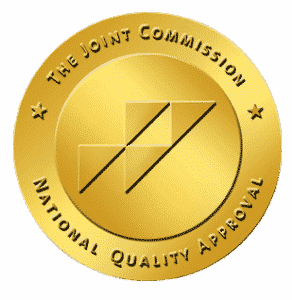Yoga is not new. In some form or another, the practice of yoga has been around for more than 5000 years. Consequently, the yoga of the past has evolved and progressed into the practice familiar to many today.
What is Yoga?
Yoga is a spiritual practice that helps promote and improve both emotional and physical health. Classical yoga includes many elements connected to spirituality. Traditional yoga (the yoga practice familiar to many in the United States) focuses on a series of postures and breathing techniques combined with meditation practice.
Depending on the source you choose, there are between five and thirteen “types” or styles of yoga. Some types carry on many of the traditional aspects of early yoga practice. Others call for more intensive sessions, including higher physical demands. The best part about so many types of yoga is that virtually anyone can find a practice that suits their abilities and needs. The most common types of yoga include Hatha, Vinyasa, Ashtanga, Iyengar, Yin, Restorative, Kundalini, Power, Rocket, and Hot. Again, some types of yoga are highly westernized and relatively new to yoga practice. Others carry forward more traditional elements. Each can help with various physical, emotional, and spiritual needs.
Can Yoga Be Used for Therapy?
Yoga for addiction recovery is a complementary therapy. Complementary therapies are not standalone therapeutic treatments; instead, they are used as a component or “complement” to other elements of a comprehensive therapy program. When a type of therapy is complimentary, it is not a suitable replacement for conventional or “traditional” psychotherapy and behavioral therapy treatments. Several studies suggest yoga, as an addition to a traditional therapy program, is helpful in all aspects of addiction treatment.
Yoga for addiction recovery integrates into our treatment programs at Rise in Malibu in several ways. Yoga helps with reducing cravings, and minimizing the intensity of withdrawal symptoms and is an effective relapse prevention tool. Additionally, learning about yoga practice as a part of addiction treatment offers an effective coping mechanism you can use throughout your life to manage cravings and triggers that could lead to relapse after treatment ends.
What are the Benefits of Yoga in Addiction Recovery?
There are several benefits of yoga in addiction recovery and lifelong physical health and wellness benefits. Practicing yoga regularly can improve your sleep, improve stamina, reduce stress, alleviate pain, and increase your energy, stamina, and strength.
Yoga for addiction may help your central nervous system (your brain and associated nerves) and other body systems heal from the effects of addiction. Research shows that long-term substance abuse leads to physical and functional changes to all body systems, including changes to how your brain communicates with the rest of your body. Practicing yoga is believed to help heal and inevitably reverse many of these changes naturally rather than through the use of medication. Yoga is also helpful during the early days of rehab.
Practicing yoga during addiction treatment at Rise in Malibu provides many benefits to your physical, emotional, and spiritual wellness. Including yoga as a complement to your traditional therapy program teaches you how to focus your mind and emotions on healing and overcoming addiction. Continuing to use yoga as a coping tool after treatment helps reduce cravings and provides a long-term trigger management tool that can help prevent relapse.
How to Find Yoga Therapy for Addiction
The idea of yoga typically stirs images of poses, stretching, and meditation. Many people believe in practicing yoga effectively. One must be flexible or possess a certain amount of physical strength. Yoga practice is far more than an activity designed to improve flexibility. Yoga for addiction recovery at our luxury Malibu drug and alcohol treatment center provides a tool you can use throughout your life to manage the ongoing challenges of addiction. Yoga has many short and long-term benefits in addition to improved flexibility and relaxation.
During rehab, yoga can help reduce cravings and withdrawal symptoms, allowing you to focus your mind on healing from addiction. After treatment ends, the long-term benefits of yoga include relapse prevention in Southern California and various emotional and physical health benefits. To learn more about how we incorporate yoga into our addiction treatment programs, contact a member of our admissions team at Rise in Malibu today.






